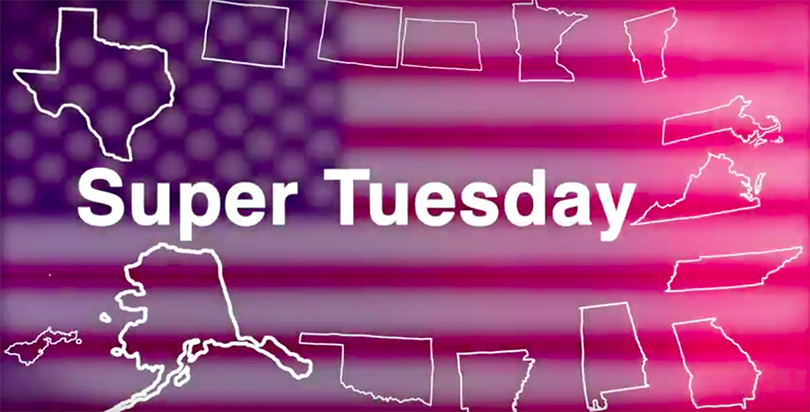Thirteen states, and one U.S. territory, turn out Tuesday to pick the presidential candidates they’d prefer to see square off in November. What better time to go beyond the polls and endorsements to survey the top education issues affecting the millions of voters across these regions:

Taken together, our Super Tuesday survey is a mosaic of education triumphs, missteps, innovations and crises.
Some states stand out for recent education victories. Arkansas’ decision to become the first state to require computer science courses in public high schools has been widely hailed; in Colorado, Denver Public Schools have been ranked first among large school districts in offering parents school choice via the SchoolMatch system; and school choice advocates in Massachusetts say the widespread success of Boston’s charter schools are proof that the state should lift its existing charter cap.
Minnesota has been in the news recently due to a segregation lawsuit that claims the state’s charter schools — many of which deliberately serve specific communities — are making classroom integration impossible. Oklahoma’s severe teacher shortage — and the state’s decision to fill classrooms by doubling its number of emergency teacher certifications over the last year — has made national headlines. Tennessee seemed on track to approve vouchers for poor families until the legislation surprisingly stalled in the legislature earlier this month.
And, as always, school funding is a big issue almost everywhere. A new study says Virginia never altered its school funding formulas after the Great Recession, and that as a result schools are now underfunded annually by $800 million. Vermont lawmakers are trying to maintain education funding by getting creative with property tax calculations. Their new idea: Calculate property taxes using owner income, not property value.

New Hampshire’s biggest education issue: The heroin epidemic

How South Carolina floods classrooms with technology


Get stories like these delivered straight to your inbox. Sign up for The 74 Newsletter


;)
